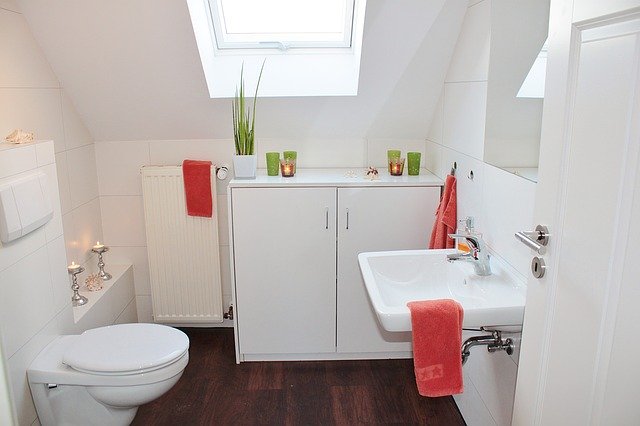Have you ever stood in the soap aisle, staring at countless options, wondering what the difference is between toilet soap and bathing soap? You’re not alone.
Many people find themselves puzzled by these terms, unsure of what distinguishes one from the other. Choosing the right soap can impact not just your skin’s health, but also your overall bathing experience. Imagine feeling confident every time you reach for a bar of soap, knowing it’s perfectly suited to your needs.
This guide will unravel the mystery for you, helping you make informed choices that align with your skin’s unique requirements. So, if you’re curious to discover what sets toilet soap apart from bathing soap, and why it matters to you, read on. Your skin will thank you.

Credit: pediaa.com
Table of Contents
Toilet Soap Basics
Toilet soap is a type of soap used for cleaning. It is made for use on the body. It has a high total fatty matter (TFM). This makes it gentle on the skin. The TFM is the key part of its composition. It determines the soap’s quality. Higher TFM means better soap.
Many toilet soaps have similar ingredients. Common ones include fatty acids, oils, and alkalis. These help in cleaning and moisturizing the skin. Some soaps add perfumes for a nice scent. Others include colors to look appealing. All ingredients aim to clean and soften skin.

Credit: www.facebook.com
Bathing Soap Essentials
Bathing soaps are for cleaning the body. They help remove dirt and sweat. Most soaps have oils, fats, and an alkali. These ingredients create the soap. Glycerin is often in bathing soaps. It helps keep the skin soft. Some soaps also have fragrances. They make the soap smell nice.
Many soaps have coconut oil. It’s good for cleaning. Olive oil is another common ingredient. It makes skin feel smooth. Some soaps contain essential oils. These oils add scent and benefits. Aloe vera is also popular. It soothes the skin. Shea butter is used for moisturizing. All these ingredients help make a good soap.
Manufacturing Processes
Toilet soap uses a special method. Makers mix natural fats with alkali. This creates a chemical reaction. The reaction forms soap. Afterward, they add perfumes and colors. This makes the soap smell nice. It also looks pretty. The soap hardens over time. Then, it is cut into bars. The bars are packed and sold.
Bathing soap is made differently. It may use synthetic detergents. This means it cleans well, even in hard water. Makers also add moisturizers. These keep the skin soft. The ingredients are mixed in large tanks. Then, they heat and pour into molds. Once cooled, the soap is shaped. Finally, it is wrapped and ready for stores.

Credit: in.pinterest.com
Skin Care Considerations
Toilet soap often contains harsher chemicals for cleaning, while bathing soap is gentler, focusing on skin nourishment. Both serve different purposes and suit varied skin needs. Understanding these differences helps in choosing the right product for healthy skin.
Moisturizing Properties
Toilet soap often contains fewer moisturizing ingredients than bathing soap. This makes skin feel dry after use. Bathing soap is designed to keep skin soft and hydrated. It often has added oils or creams. These help retain the skin’s natural moisture. Choosing the right soap can help your skin stay healthy. It prevents itching and dryness. Always check the ingredient list. Look for words like “moisturizing” or “hydrating”.
Skin Sensitivity And Allergies
Toilet soap may have strong fragrances and chemicals. These can cause allergies for sensitive skin. Bathing soap is usually gentler on the skin. It is made for daily use. Look for soaps labeled “hypoallergenic”. They are less likely to cause allergies. Always test a small area first. This helps avoid bad reactions. Different skins need different care. Choose wisely for healthy skin.
Usage And Applications
Toilet soap is for cleaning hands and face. It is often used in restrooms. The soap removes dirt and bacteria. Bathing soap is for the whole body. People use it during showers or baths. It makes the skin feel fresh and clean.
Personal Preferences
Some people like toilet soap for its scent. Others prefer bathing soap for its softness. Personal choice plays a big role. Some prefer a soap with more bubbles. Others look for a soap that moisturizes the skin.
Specialized Uses
Special soaps are made for different needs. Some are for sensitive skin. Others help with acne. Some soaps have natural oils. Others have herbs for a special feel. People choose based on their skin type.
Market Availability
Toilet soaps and bathing soaps come in many brands. Popular brands offer both types. Some brands focus on toilet soaps. Others specialize in bathing soaps. You can find many options in stores. Each brand has its own unique formula. Some brands use natural ingredients. Others use synthetic ones. Choices are plenty for everyone.
Toilet soaps often cost less than bathing soaps. Prices depend on ingredients and brand. Natural ingredients can be more expensive. Synthetic soaps are often cheaper. Luxury brands cost more. Budget brands are affordable. Everyone can find a soap that fits their budget.
Environmental Impact
Many toilet soaps come in plastic packaging. This can harm the earth. Bathing soaps often use paper wraps. These are better for nature. Some soap makers use sustainable sources. They choose ingredients that are safe for the planet. Natural oils and plant-based colors are good choices. These help keep the earth healthy.
Eco-friendly soaps are growing in popularity. They use natural materials. No harsh chemicals or artificial colors. This makes them safe for water and soil. Recyclable packaging is important too. It reduces waste. Some people choose handmade soaps. These often come with zero waste packaging. Choosing these options supports the planet.
Frequently Asked Questions
What Distinguishes Toilet Soap From Bathing Soap?
Toilet soap typically has higher fatty acid content than bathing soap. This makes it more effective for cleaning and moisturizing skin. Bathing soap might contain additives for fragrance or exfoliation, catering to varied skincare needs. Understanding these differences can help choose the right soap for personal care.
Are Toilet Soaps Better For Sensitive Skin?
Toilet soaps generally have a higher fatty acid content, offering better moisturizing properties. They can be more suitable for sensitive skin. Bathing soaps may contain fragrances and additives, which might irritate sensitive skin. Always check ingredients and opt for products designed specifically for sensitive skin.
Can Bathing Soap Replace Toilet Soap?
Bathing soap can cleanse the skin but may not offer the same moisturizing benefits as toilet soap. Toilet soap usually has higher fatty acid content, ideal for hydration. Depending on your skin type and needs, you might prefer toilet soap for daily use.
Is Toilet Soap More Hygienic Than Bathing Soap?
Toilet soap generally has a higher cleansing ability due to its fatty acid content. This makes it more effective for removing dirt and bacteria. Bathing soap might focus more on fragrance and skin feel. Choose toilet soap for superior hygiene and cleanliness.
Conclusion
Choosing between toilet soap and bathing soap depends on your needs. Toilet soap cleans effectively, often used for hand washing. Bathing soap suits sensitive skin, offering gentle care. Both have unique benefits and ingredients. Consider your skin type and preferences.
Check labels for suitable options. Natural ingredients in bathing soaps are often safer for sensitive skin. Toilet soaps, with stronger agents, might dry your skin. Decide based on your skin’s reaction and personal comfort. Always test new products on a small area first.
Keep skin health as your priority. Make informed choices for better skin care.






